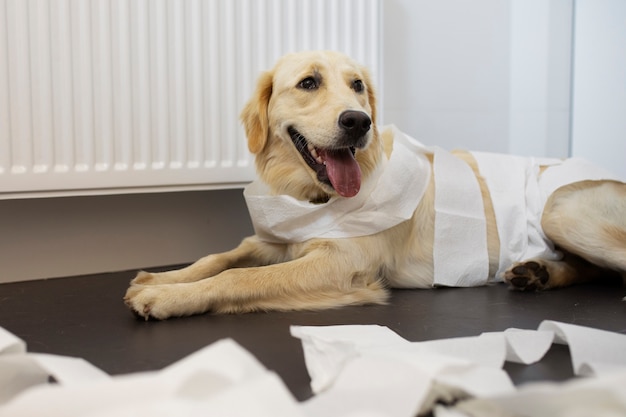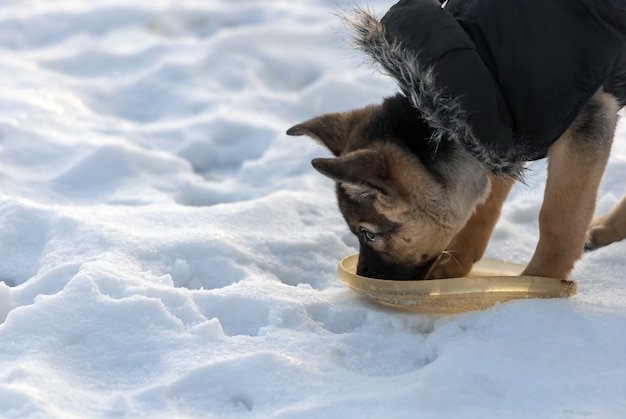What to Expect from Orthopedic Surgery at Harmony Road Veterinary Clinic

What to Expect from Orthopedic Surgery at Harmony Road Veterinary Clinic
If your pet is suddenly limping, struggling to jump, or not as playful as usual, you may be wondering if they need more than just rest and time. Orthopedic problems like torn ligaments, joint injuries, or fractures are not uncommon in dogs and cats, especially as they get older or after an accident. Facing the possibility of surgery can feel overwhelming, but knowing what to expect can make the journey much less stressful for both you and your pet.
At Harmony Road Veterinary Clinic, located at 309 W. Harmony Road, Fort Collins, CO 80526, our team of veterinarians is committed to delivering compassionate, advanced orthopedic care for pets in Fort Collins and surrounding communities. Whether your dog needs a complex knee repair or your cat has suffered a fracture, we offer a comprehensive, step-by-step approach to ensure safety, comfort, and a smooth recovery. In this blog, we will guide you through the entire process of pet orthopedic surgery in Fort Collins, from recognizing the signs of orthopedic problems and understanding the underlying causes to exploring surgical options, pain management, and the most effective pet surgery recovery tips. If you are searching for a “vet near me” who truly understands both the science and the heart involved in orthopedic care, you are in the right place.
For more details about our orthopedic capabilities, you can explore our orthopedic surgery and related orthopedic veterinary services page to learn how we support active, pain-free lives for pets.
Recognizing the Signs: When Does Your Pet Need Orthopedic Surgery?
Many pet owners first notice subtle changes in their dog or cat’s movement or energy level. Signs that your pet may need orthopedic evaluation include persistent limping, avoiding stairs or car rides, reluctance to jump or play, and visible swelling or heat in a limb. You might also see your pet favoring one leg, having trouble rising from rest, or yelping when touched in a sensitive area. Sometimes, these changes are gradual, while in other cases, you may witness a sudden injury during play or after a slip on the ice—something not uncommon in Fort Collins’ winter months.
For both dogs and cats, orthopedic problems can stem from a variety of causes, so being alert to changes in mobility or behavior is crucial. Early intervention can make a significant difference in both short-term comfort and long-term function. If you notice any of these symptoms, it is always best to schedule an appointment with our veterinary team for a thorough exam. Remember, some issues may be subtle at first, but can progress quickly without proper care.
Understanding the Causes: Why Do Pets Need Orthopedic Surgery?
Orthopedic injuries and conditions can affect pets of all ages, breeds, and activity levels. In dogs, common reasons for orthopedic surgery include torn cranial cruciate ligaments (similar to ACL injuries in humans), luxating patellas (kneecap dislocation), hip dysplasia, and fractures from trauma. Cats may require orthopedic intervention for fractures, joint luxations, or chronic conditions like arthritis that become severe.
Factors contributing to these problems range from genetic predisposition and age-related wear to sudden trauma, like being hit by a car or falling from a height. In active breeds or younger pets, high-energy play can sometimes lead to ligament tears or broken bones. For older pets, years of joint stress or underlying conditions such as arthritis can gradually lead to pain and decreased mobility, ultimately requiring surgical intervention if conservative measures no longer provide relief.
Certain conditions, like patellar luxation or hip dysplasia, are more common in specific breeds. Large-breed dogs, for example, are often at risk for cruciate ligament injuries or hip dysplasia, while smaller breeds may experience luxating patellas more frequently. Environmental factors, such as slippery floors or icy sidewalks in Fort Collins, also play a role in accidental injuries.
The Treatment Journey: What Happens During Pet Orthopedic Surgery in Fort Collins?
When you bring your pet to Harmony Road Veterinary Clinic for an orthopedic concern, the process begins with a comprehensive physical exam and detailed orthopedic assessment. Our veterinarians may recommend advanced diagnostic imaging, such as radiographs or digital X-rays, which help pinpoint the specific injury or condition and guide the treatment plan. To learn more about our advanced imaging capabilities, you can visit our digital radiology diagnostic imaging for pets page.
Once a diagnosis is confirmed, we discuss all available treatment options with you, including both surgical and non-surgical approaches. For some pets, rest, medications, or physical therapy may be appropriate, but many orthopedic injuries require surgical intervention to restore function and relieve pain. Our clinic provides a full spectrum of pet orthopedic surgery in Fort Collins, including procedures such as TPLO (Tibial Plateau Leveling Osteotomy) for cruciate ligament injuries, MPL (Medial Patellar Luxation) repair, FHO (Femoral Head Ostectomy) for severe hip problems, and fracture repairs.
What to Expect Before, During, and After Surgery
Before surgery, our team completes pre-anesthetic bloodwork and reviews your pet’s medical history to ensure they are healthy enough for anesthesia. We use advanced monitoring equipment throughout the procedure to keep your pet safe and comfortable at every stage.
During surgery, our veterinarians employ proven techniques and sterile protocols tailored to the specific procedure. Whether your dog is undergoing a TPLO surgery for ligament repair or your cat needs an FHO for hip pain, we focus on precision and gentle handling to minimize surgical trauma.
After surgery, pain management becomes our top priority. Our team develops a customized pain control plan using multimodal approaches, which may involve medications, cold therapy, and gentle handling. Your pet will be closely monitored during recovery, and we keep you updated on their progress every step of the way.
We recognize that every pet’s needs are unique, so our discharge process includes a thorough review of post-operative care instructions, follow-up appointments, and ongoing support. We are always available to answer your questions, whether you are at home or need to contact us for reassurance.
Supporting Recovery: Pet Surgery Recovery Tips for Fort Collins Pet Owners
Helping your pet recover after orthopedic surgery is a partnership between our veterinary professionals and your family. The first days at home are especially important. Key pet surgery recovery tips include confining your pet to a small, comfortable area to prevent running or jumping, using a leash for controlled bathroom breaks, and following all medication instructions precisely. Monitoring the surgical site for swelling, redness, or discharge is crucial. If you notice these symptoms or your pet seems unusually lethargic or uncomfortable, contact our clinic right away.
Physical rehabilitation often starts with gentle, passive range-of-motion exercises, as instructed by our veterinarians. Gradually, and only when directed, you may introduce short, slow walks to help rebuild strength and mobility. It is also essential to use non-slip mats or rugs in your home, especially during icy Fort Collins winters, to prevent slips and falls.
Nutrition and hydration play important roles in healing. Make sure your pet has easy access to fresh water and is eating an appropriate recovery diet. Sometimes, a change in appetite or digestive upset can occur after surgery; let us know if you have any concerns.
Finally, patience is key. Full recovery can take several weeks to months, depending on the procedure and your pet’s age and activity level. Consistency in following our care instructions and attending scheduled recheck appointments will set the stage for the best possible outcome.
For more guidance on what to expect during orthopedic recovery, our orthopedic surgery and related orthopedic veterinary services page provides additional details.
Prevention and Home Care: Keeping Your Pet Mobile and Comfortable
While not all orthopedic problems can be prevented, there are steps you can take to reduce your pet’s risk of injury and support healthy joints. Regular exercise helps maintain muscle strength and joint flexibility, but it is important to match activity to your pet’s age and ability. Avoid high-impact play on slippery surfaces, and supervise pets around stairs or icy patios, especially in the colder months.
Weight management is another crucial factor. Carrying excess weight puts additional stress on joints and increases the risk of ligament injuries. Our team is always available to design a nutrition and exercise plan tailored to your pet’s needs.
Routine wellness exams allow us to catch early signs of orthopedic issues before they become serious. Early intervention may prevent the need for surgery or minimize its impact. If your pet has a history of orthopedic problems, regular follow-up visits are especially important.
If you are searching for “veterinary services near me” that offer both preventive care and advanced surgical solutions, Harmony Road Veterinary Clinic is here to help.
When to Seek Veterinary Care: Knowing When to Call the Experts
If your pet is limping, unable to bear weight on a limb, or crying out in pain, do not wait to seek veterinary attention. Sudden injuries, such as those caused by accidents or falls, require prompt assessment to prevent further damage. Signs like swelling, heat, bruising, or a visibly deformed limb are red flags that immediate veterinary intervention is needed.
For chronic issues, such as a gradually worsening limp or reluctance to play, scheduling an orthopedic evaluation can help determine the underlying cause and prevent long-term complications. Even subtle changes in your pet’s gait or activity level may signal a developing problem.
Our veterinary team at Harmony Road Veterinary Clinic is equipped to evaluate and treat a wide range of orthopedic conditions. If you are unsure whether your pet’s symptoms warrant a visit, call us for personalized guidance. We are dedicated to providing quality veterinary services in Fort Collins, ensuring your pet receives the care they need, when they need it.
Your Partner in Pet Orthopedic Surgery in Fort Collins
Facing pet orthopedic surgery in Fort Collins can feel daunting, but with the right information, compassionate support, and a dedicated veterinary team, you and your pet are never alone. At Harmony Road Veterinary Clinic, we walk you through each step, from the initial diagnosis to post-surgical recovery, always prioritizing your pet’s safety and comfort. Our approach blends advanced surgical expertise with a deep commitment to personalized care, offering everything from preventive guidance to comprehensive surgical solutions.
If you have concerns about your pet’s mobility or suspect an orthopedic issue, we encourage you to schedule an appointment with our veterinarians. Whether you are in Fort Collins or a neighboring community, our clinic is ready to help you and your companion get back to enjoying active, pain-free days. To learn more about specific procedures such as TPLO surgery for pets or our broader orthopedic surgery and related orthopedic veterinary services, please visit our website.
For expert advice, advanced care, and the reassurance of a quality “vet near me,” contact Harmony Road Veterinary Clinic at (970) 631-8199 or stop by our welcoming clinic at 309 W. Harmony Road, Fort Collins, CO 80526. Our team is here to support you, answer your questions, and provide the highest standard of pet orthopedic surgery in Fort Collins.
Medical Disclaimer: This blog is for informational purposes only and should not be considered a substitute for professional veterinary advice, diagnosis, or treatment. Always consult your veterinarian for guidance specific to your pet’s health and situation.
For additional resources about orthopedic care, you can consult the American College of Veterinary Surgeons or reach out to our clinic for more information.






















